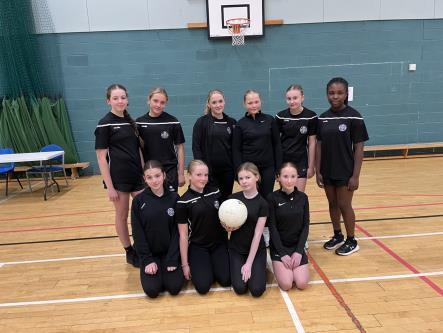








Since you started at Holy Family Catholic High School, you have taken a range of subjects and have had opportunities to learn in a wide variety of ways. It is now time to consider the next stage in your school career.
In September, you will begin courses that lead directly to GCSE and other qualifications at the end of Year 11. This means that you will need to study fewer subjects, but in greater depth. You will continue to study core subjects, but you will also have to decide which other subjects you wish to continue to study.
The purpose of this booklet is to help you and your parents to make informed choices about what type of course and which subjects best suit you. Think about your choice of subjects carefully as the decisions you make now may be influenced by what you intend to do in the future Remember, when you finish your learning in year 11, you will be making more choices about which sixth form courses to take.
We are offering you a curriculum in Key Stage 4 which is relevant to your needs, both now and in the future. This curriculum will enable you to achieve your maximum potential at this level. Courses are arranged in such a way as to meet two other general aims:
1. To provide a broad and balanced education which keeps your career and further education options open for as long as possible. and;
2. To give you the chance to follow your individual interests and develop your own particular abilities, both inside and outside the classroom.
Every student will have the opportunity to have an options meeting with a senior member of staff The process for choosing subjects will be explored and the appropriateness of each subject choice discussed in detail. The whole options process is about finding the right balance of subjects to get the best possible value in terms of qualifications for you, whilst still ensuring a balance to the curriculum. If parents/guardians would like a separate individual meeting then we can accommodate this.

After subject choices forms have been completed, they will be scrutinised by the school. Our aim will be to give you your first choices, but we must stress that this is not always possible for the following reasons:
• More pupils opt for a course than there are places available.
• Not enough pupils opt for a course and therefore we are unable to run it
• In our opinion, you have made an inappropriate or unwise choice.
In these cases, you and your parents will be kept fully informed, and no change will be made to your choices without discussion of the options available. When making decisions on subject places we take into consideration your application and commitment to the subject over the last three years.
We hope the information provided in the accompanying booklet is useful to you. Please do not hesitate to contact the school at any stage if you need clarification on any point or if you feel concerned.
There is always help available. Speak to your form tutors, class teachers, Progress Leader and senior staff such as Mrs Parker, Mr Nutman and Mr Westbury. Teachers are there to help you with your decision making. Make the most of them so that you choose the options that work for you Involve your parents or carers – they want the best for you and will be keen to support you through this process

What’s next?
Next year you will continue to study many of the subjects you currently have – English, Maths, RE, and Science. You will also be studying three subjects that you choose from the option blocks.
To decide which subjects you wish to study you will need to:
➢ Spend time reading this booklet, exploring your skills and strengths and how these relate to the choices you are considering
➢ Talk to staff about your current progress in different subject areas and how this may influence your choices
➢ Attend any one-to-one guidance interview
➢ Get information on the Choices process in assemblies.
A separate booklet will be provided with information on the different courses available to you. When considering your choices, you should think about the following as you go through the booklet:
➢ Will I enjoy the subject content?
➢ Do I enjoy practical subjects or more theory-based subjects?
➢ What kind of assessment suits me?

Who knows you really well?
Talk to your parents, carers and subject teachers. They want the best for you and will tell you if they think that an option will suit you and explain why They will also help you to explore and think about alternatives.
Who knows what you need to know?
Don’t let teaching methods, workload and assessment come as a surprise. Find out what an option is really like, where it leads and how it could help you in the future. Check that it suits your abilities and interests Read all the information you can get Talk to the staff in charge of the subjects and the students currently doing them.
Who can give you help if you’re confused?
Speak to the people in charge of the options process – Mr Nutman, Mr Westbury, your Progress Leader and Mrs Parker They know a lot about what each option involves They can tell you how it could help you in the future and where to get more information and help
You – Do your research!
➢ Read all the information the school gives me
➢ Check which subjects are compulsory for each pathway
➢ Talk to the teachers to see if they think it is a good idea to do their course
➢ Talk to people who are already studying the course which interests me
➢ Talk to my parents/carers to find out what options they think I should do and why
➢ Look up the careers that interest me on the internet and find out what subject, qualifications and grades I will need for these careers

It is a qualification introduced by the Government.
It is not an exam in itself but an extra measure that you will gain if you get a GCSE grade 5 or above in all 5 subjects from the following GCSE subjects that are usually looked on favourably by universities.





These subjects are the ones most regularly asked for by college and university courses. This is important to consider when deciding which GCSEs to take You don’t need to have studied all of these to go to university, but having your GCSE mix steered towards EBacc subjects will help keep your options open. Therefore, it will be appropriate for a number of students to study this suite of subjects alongside options of their choice

As students begin to consider their choices we are often asked the following questions:
At Holy Family we require that all pupils study:
➢ English
➢ Mathematics
➢ Science
➢ Religious Education
➢ A Modern Foreign Language or Geography or History
These form the core subjects for the General Certificate of Secondary Education (GCSE). Physical Education (PE) is a compulsory non-examination subject but it can also be chosen as an option at GCSE level and you will also follow a Personal Development curriculum which is not examined.
How is the GCSE examined?
Students sit their GCSE examinations at the end of Year 11. Some examinations are offered at Foundation Level and Higher Level You will be entered for the level which best suits your needs and abilities after consultation between yourself, your parents and your teachers. Decisions of this kind are usually made in January of Year 11 after your prediction examinations. Vocational subjects tend to be more coursework and portfolio based. A section of the work is assessed in school and moderated by the exam board, and there will also be an examination.
Does my success in Years 10 and 11 depend entirely on how well I perform in exams?
Yes, for many subjects. However, an essential part of some GCSE examinations are the marks awarded for controlled assessments or practical work completed throughout Key Stage 4. You will be given opportunities to draft some of your controlled assessments and to consult your teachers for help and advice If you organise your time effectively and meet deadlines you will achieve your best work. This of course will enable you to go into your final exams with a percentage of the marks already banked.

How many options must I choose?
You need to choose four subjects on the ‘Options’ form that you complete online. You need to choose three options and a reserve Whilst we try to support your choices, it may be that all pupils will not have their first choice because of the numbers opting or because of staffing. In these cases, students will be re-interviewed and asked to re-select one of their choices.
Where will I get the information from to help me make a sensible choice?
Firstly, take the time to read the information provided to you about the various option subjects on offer. Secondly, your teachers will talk to you about what GCSE study of their subject involves and the career opportunities which can follow from it. Remember the discussions and advice that you have been given in assemblies. Don’t be afraid to ask questions. Also, you (and your parents if requested) will be given an individual interview.
Will I need specific career guidance?
The short answer is ‘no’. However, it is important to be aware that a broadly-based selection of subjects will allow you to keep your options open after Year 11. Choose the subjects you enjoy and feel you will do particularly well at. Your target is to obtain a minimum of 5 GCSEs at Grade 9-5 which will keep all options post-16 available to you, or, to gain the necessary qualifications to enable you to progress in your chosen area.
These choices are very important because your grades at GCSE are your “passport” to future education or employment
1. Research all your options before making a decision.
2. Choose the subjects you are likely to do best in. Use your current levels and the feedback you have had from your teachers to guide you.
3. Don’t make a choice just because you like the teacher. That teacher may well not be taking the group you end up in.
4. Be realistic about your strengths and weaknesses and accept realistic advice about the type of course you choose.
5. Above all, don’t choose a subject because your friend is doing it! There is no guarantee you’ll end up in the same class!
T students whose choices cannot be accommodated.



Option Choices- Students pick 3 options and 1 compulsory RE option. Students to pick one option from each block. The option block you do not pick an option in, you must pick RE.
Students must pick at least one of the following Ebacc subjects - Geography, History, Computer Science, Separate Science, French or Spanish. Some students will be encouraged to pick 2 Ebacc options.
Reserve Choice (pick 1 reserve option)

Option Choices- Students pick 3 options and 1 compulsory RE option. Students to pick one option from each block. The option block you do not pick an option in, you must pick RE.
Students must pick at least one of the following Ebacc subjects - Geography, History, Computer Science, Separate Science, French or Spanish. Some students will be encouraged to pick 2 Ebacc options.

Option Choices- Students pick 3 options and 1 compulsory RE option. Students to pick one option from each block. The option block you do not pick an option in, you must pick RE.
Students must pick at least one of the following Ebacc subjects - Geography, History, Computer Science, Separate Science, French or Spanish. Some students will be encouraged to pick 2 Ebacc options.
Reserve Choice (pick 1 reserve option)


Subject -
Exam Board -
Art & Design
AQA
• Submit assessment portfolio for grading
• 10 hour practical exam
Students will;
· Display an exhibition of their work
· Submit their portfolio
· Present their sketchbooks containing all their homework, annotations and ideas,
· Sit a 10-hour practical exam and include this final piece and its planning work in their exhibition.
The course is geared towards the requirements and demands of the AQA GCSE syllabus. Pupils are encouraged to respond to starting points with their own individual and personal ideas which they are to develop through sustained and independent study to a suitable outcome. Pupils are encouraged to work using their own initiative, utilising the skills and practices of the previous years in order that they become fluent in the art making process.
6th form offers A Level Art as a pathway into post 16 education.


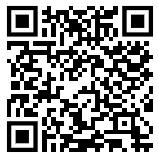

Subject -
Exam Board -
L1/2 Business & Enterprise
Pearson
Assessment Format
Component 1 – Exploring Enterprises (Controlled assessment)
Component 2 – Planning and presenting a microenterprise idea (Controlled assessment)
Component 3 – Marketing and Finance for enterprise (Exam)
Vocational qualifications are designed to provide a well-rounded education. You will be expected to develop key skills required in industry which include:
• Communication
• Financial accounting/numeracy
• Entrepreneurship
• Business language and terminology
Level 1/Level 2 Tech Award in Enterprise (603/7063/4), is for learners who wish to acquire knowledge and skills through vocational contexts by studying the knowledge, behaviours and skills related to researching, planning, pitching and reviewing an enterprise idea as part of their Key Stage 4 learning. The qualification enables learners to develop their technical skills, such as market research skills, planning, promotional and financial skills using realistic work scenarios, and personal skills, (such as monitoring own performance, time management and problem solving) through a practical and skills-based approach to learning and assessment.





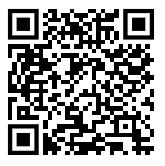

Subject -
Exam Board -
GCSE Computer Science
OCR
Assessment Format
2 x 90minute exam papers
Paper 1 – Computer Systems (50%)
Paper 2 – Algorithms and Programming (50%)
It introduces students to how a computer works as we know it including network hardware, system architecture and binary conversions.
We also complete a minimum of 20hours programming time in Python. This gives the students the knowledge to program independently and opens their brains to understand specific logically challenges.
Students should pick GCSE Computer Science if you would like to go into any IT/Engineering profession. You should also be aware that this course would also be suitable for students who want a career in any profession that will lead to them having to solve problems constantly.
6th form subjects that would be crucial to take after this course would be A Level Computer Science, Computing – App Development, Maths and Physics.







Subject -
Exam Board -
GCSE Dance
AQA
Assessment Format
Component 1 – Performance and Choreography (60%)
Component 2 – Dance Appreciation Exam (40%)
This specification focuses on the aesthetic and artistic qualities of dance and the symbolic use of movement to express and communicate ideas and concepts through the interrelated processes of performance, choreography and appreciation. Dance is a powerful and empowering form of non- verbal communication, and it is both physical and expressive, which makes it similar to and different from other art forms and physical activities. Dance develops creative, imaginative, physical, emotional and intellectual
To make excellent progress in this subject you need to be committed to the rehearsal and performance process. You will need to be able to demonstrate a strong skill set through every task to demonstrate your appreciation of dance and the work of professionals. You must be motivated and interested by dance and be able to think creatively




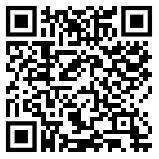


Subject -
Exam Board -
GCSE Drama
AQA
Assessment Format
Component 1 – 1hour 45min examination on drama and theatre (40%)
Component 2 – Devising Drama (Practical) (40%)
Component 3 – Texts in Drama (Practical) (20%)
What the course will involve: Improvisation, Exploration of play texts, Rehearsal techniques, Script writing and devising, Technical skills – lighting, sound and set, Theatre visits to see professional productions, Group performances, Developing performance and interpretation skills
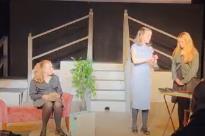
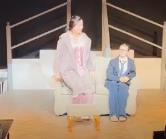

There has never been a better time to study Drama at GCSE level in Holy Family. Riding high on a wave of outstanding GCSE results last year, the new GCSE Drama specification is more exciting than ever giving pupils even more scope to develop as Drama practitioners. This new GCSE offers pupils the chance to watch an abundance of professional plays as well as giving them the opportunity to showcase their own talents, all the time increasing their confidence to perform in the presence of others.




Subject -
Exam Board -
GCSE English Language
Edexcel
Assessment Format
Paper 1 – Reading 19th Century Non Fiction & Transactional writing (1hour 55mins)
Paper 2 – Contemporary Writing & Imaginative Writing (1hour 55mins)
At Key Stage 4, our aim is to encourage students to build on the knowledge and skills acquired at Key Stage 3 and to flourish in preparation for the GCSE exams in English Language and English Literature
Why study this subject?
By studying a broad range of fiction and non-fiction, we aim to support students in the following skills: extending their critical and analytical reading skills; further crafting and refining their writing skills, building stamina and writing for a range of purposes; speaking confidently and articulating their views effectively.
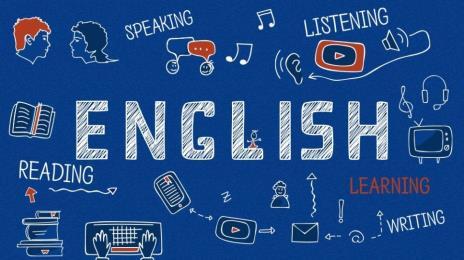



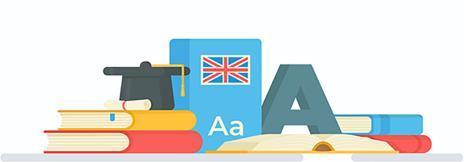
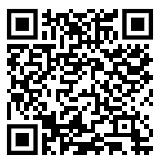

Subject -
Exam Board -
GCSE English Literature
Edexcel
Assessment Format
Paper 1 – Macbeth & Inspector Calls (1hour 45mins)
Paper 2 – A Christmas Carol, Poetry (Conflict) (2hours 15mins)
At Key Stage 4, our aim is to encourage students to build on the knowledge and skills acquired at Key Stage 3 and to flourish in preparation for the GCSE exams in English Language and English Literature.
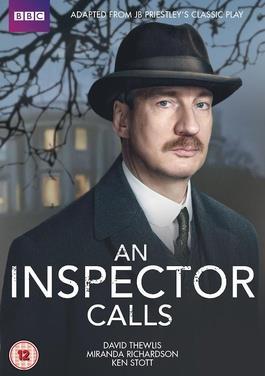

By studying a broad range of fiction and non-fiction, we aim to support students in the following skills: extending their critical and analytical reading skills; further crafting and refining their writing skills, building stamina and writing for a range of purposes; speaking confidently and articulating their views effectively.
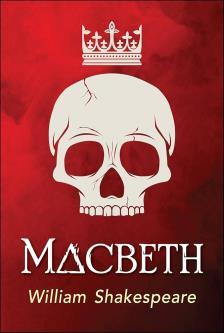


Scan to read more…


Subject -
Exam Board -
Pearson
Unit 1 – 20 hour controlled assessment - Make and portfolio (40%)
Unit 2 – 10 hour controlled assessment - Redesign with engineering drawings and portfolio (20%)
Unit 3 – 90-minute examination (40%)
This is a two-year course, the vocational award in engineering has been designed to support learners in schools who want to learn about this vocational sector and the potential it can offer them for their careers or further study It is most suitable as a foundation for further study
Students taking part in the engineering course must be extremely dedicated and organized 60% of the marks gained for their overall grade are done through coursework (controlled assessments), completed in lesson time
Students will have independent learning to support their studies throughout the course Independent learning will be electronic and set via Microsoft teams assignments, or Seneca, with notification and information shared on Class charts
In Year 10 Engineering will be assessed based on their performance in theory, practical and mock coursework assignments In Year 11 students will have coursework formally marked and assessed against exam board criteria
Engineering is a driving force in the UK’s economy, accounting for 21% of the UK’s GDP turnover. However, there is a considerable shortage of skilled workers in the engineering sector.
The Vocational Award in Engineering has been designed to support pupils who want to learn about this subject and the potential it can offer them as a career or for further study



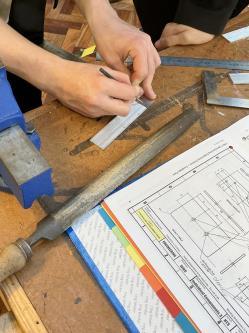
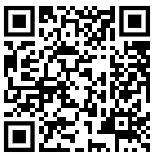


Subject -
Exam Board -
GCSE Food Preparation and Nutrition
Eduqas
Component 1 – 1hour 45min examination (50%)
Component 2 – Practical assessment (50%)
• Principles of nutrition, looking at the key nutrients that are needed for good health.
• Diet and good health, looking at government guidelines for healthy eating and how to plan diets for people with specific dietary needs
• The science of cooking food, looking at different methods of cooking foods and carrying out some scientific experiments, for example, looking at how yeast works
• Food choice, looking at the range of factors that influence food choice including cultural, religious, ethical and medical
• Food spoilage and food waste, looking at how to prevent food poisoning and also avoiding food waste
• Food provenance, looking at where foods come from and the importance of food miles
• Cultures and cuisines, looking at the different types of cuisines, key ingredients and popular dishes
The Eduqas GCSE in Food Preparation and Nutrition equips learners with the knowledge, understanding and skills required to cook and apply the principles of food science, nutrition and healthy eating. It encourages learners to cook, enables them to make informed decisions about food and nutrition and allows them to acquire knowledge to be able to feed themselves and others affordably and nutritiously, now and later in life. This qualification in food preparation and nutrition will enable you to make connections between theory and practice so that you are able to apply your understanding of food science and nutrition to practical cooking.



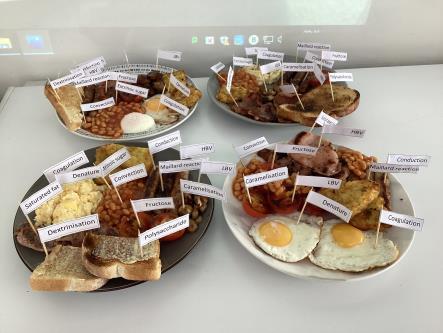



Subject -
Exam Board -
AQA
Paper 1- Living with the physical environment 1 hour 30 mins. (35%)
Paper 2- Challenges in the human environment 1 hour 30 mins. (35%)
Paper 3- Geographical Applications/fieldwork exam 1 hour 30 mins. (30%)
This popular course offers engaging and topical content; such as flooding in the UK and global food supply. It is both stimulating and contemporary as a subject. Students will be learning both physical and human Geography in self-contained topic areas, a focus on physical processes and factors that produce diverse and dynamic landscapes over time. Fieldwork is an essential part of the course and pupils will take part in a minimum of 2 compulsory days plus an optional enrichment residential
Geography is relevant to your everyday life: using maps, hazard management, the rapid changes taking place in cities and the countryside, world weather, local flooding and food costs, multi-national companies and politics to name but a few. Choosing Geography will allow you to learn about local and global places and give you an opportunity to develop your sense of awe and wonder.







Subject -
Exam Board -
L1/2 Tech award in Health and Social Care
Pearson
Assessment Format
Component 1 – Human Lifespan Development (Controlled assessment)
2 – Health and Social Care Services and Values (Controlled assessment)
Component 3 Health andWellbeing (Exam)
BTEC Tech Award in Health and Social Care provides students with essential knowledge in the sector and transferable skills to improve learning in all subjects. Examples include: research skills, developed writing techniques and insight into the vocational sector.


Health and Social Care is a Level 1 / 2 vocational qualification that is equivalent to one GCSE. The concept of this course is that learners will gain the specialist knowledge and relevant skills that appear across the health and social care industry. This knowledge is gained through guest speakers, case studies and independent research. Students will study a programme that consists of 3 components over a 2year period.

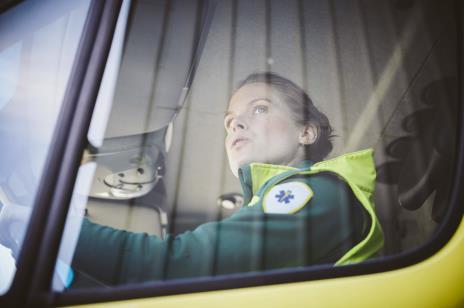

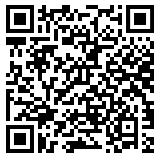

Subject -
Exam Board -
EDEXCEL (Pearson)
Assessment Format
Paper 1 - Thematic Study (1hour 20min exam)(30%)
Paper 2 - British Study (1hour 50min exam)(40%)
Paper 3 - ModernWorld Study (1hour 30min exam) (30%)
• International relations – the causes, key events and end of the Cold War (1943-1991)
• Key aspects of British (early English) history – looks at Anglo-Saxon society, the Norman invasion & the consequences of this Norman conquest
• How historians use sources to find out about what happened – it could be people talking about their experiences in Whitechapel during the 19th century or life under the Nazis in Germany.
• How to justify your own opinions – using sources and key pieces of historical information to back up arguments.
History GCSE has changed Gone is the over-focus on the 20th century. Now you will study key historical features from the last 1,000 years. There is still a focus on the 20th century: you will get the chance to study Hitler & the Nazis!
The course, however, offers the chance to look at other interesting aspects of British history, from the Anglo-Saxons and Normans of the 11th century to the crimes of Jack the Ripper in 19th century London.
The thematic unit on Crime and Punishment will show you how one aspect of British society has changed over 1,000 years.
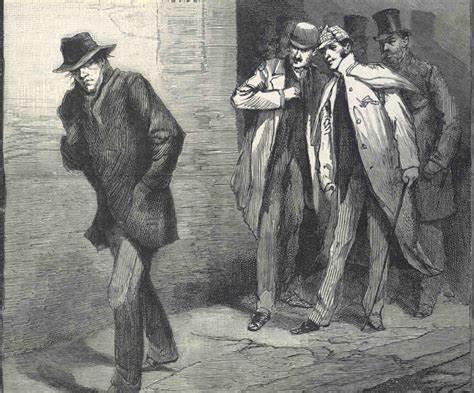
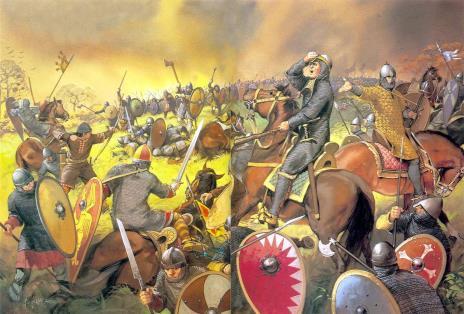


Scan to read more…



Subject -
Exam Board -
InformationTechnology (IT)
WJEC
Assessment Format
Component 1 – On-Screen exam (40%)
Component 2 – Coursework (60%)
You will develop knowledge and understanding of the way ICT is being used and develop several skills which are valued by college and employers. These skills include: Communication, Designing Skills, Problem Solving and Critical Thinking.
The software that you will use is Photoshop, Access database, Excel Spreadsheets and Word.
ICT supports a number of pathways and could form a basis for progression into BTEC Level 3 IT (Holy Family).
Pupils could also go onto employment where they can take further training in such areas as Multimedia, Web Development, Game Development and Computing.
You can use this qualification to go into several different things. Specific careers could be: Games Design, Games Testing, Website Design, Graphics Designer, Computer Programmer Cyber Security and Ethical Hacking







Subject -
Exam Board -
GCSE Maths
Edexcel
Assessment Format
Paper 1 – Non-calculator (1hour 30mins)
Paper 2 – Calculator (1hour 30mins)
Paper 3 – Calculator (1hour 30mins)
At Key Stage 4 pupils follow the same core curriculum, which builds upon the foundations that have been put in place at Key Stage 3. Pupils are given clear guidance as to what they should expect to learn in each unit, as well as how this type of mathematics is used in ‘real life’.
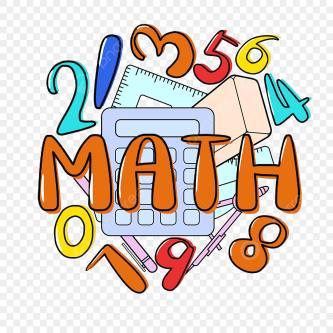

Each unit is followed by a unit test The unit tests check FLUENCY skills, as well as REASONING and PROBLEM SOLVING. The style of questioning requires both recall of fundamental facts, procedures, and knowledge, as well as more advanced questioning which requires a deeper understanding which allows pupils to make connections between seemingly disparate topics and skills.


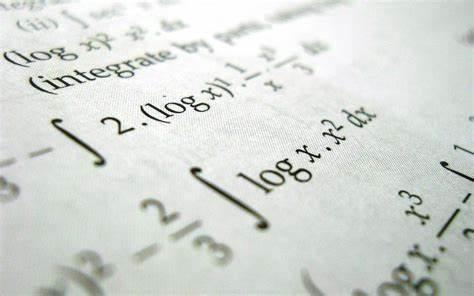
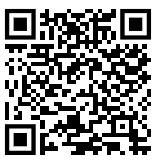

Subject -
Exam Board -
L1/2 Tech Award in Music Practice
Pearson
Comp 1 – Exploring music products and styles (Coursework)
Comp 2 – Music Skills Development (Coursework)
Comp 3 – Responding to a commercial music brief (Exam)
Learn about all aspects of music. Where it comes from, why it was composed.
Learn about how to analyse music Looking at structure, melody and much more.
How to record / enhance music through music technology effects. Improve your performance skills, whether that is learning an instrument or continuing to develop your skills on your chosen instrument.
Learn how to create your own music with the help of Cubase and Sibelius Music software.
The BTEC Level 1/Level 2 Tech Award in Music Practice is for learners who enjoy the practical elements of music including performing and composing. The qualification recognises the value of learning skills, knowledge and vocational attributes to complement GCSEs. This qualification requires learners to demonstrate knowledge and understanding of the musical elements, musical contexts and musical language and allow learners, where appropriate, to apply these to their own work when performing and composing. These areas have been covered in Music lessons fromYear 7

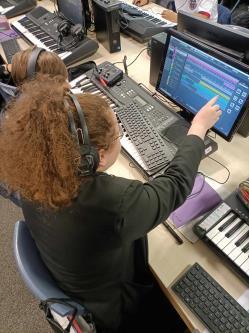





Subject -
Exam Board -
Eduqas
Assessment Format
Component 1 – Foundational CatholicTheology (1hour 30mins) (37.5%)
Component 2 – Applied Catholic Theology (1hour 30mins) (37.5%)
Component 3 – Study of a world faith (1hour)(25%)
This course provides you with the opportunity to study two themes from a mainly Catholic perspective (with some reference to other Christian, nonreligious and Jewish views, where appropriate): Component 2: Applied Catholic Theology This Component provides you with the opportunity to study two themes from a mainly Catholic perspective (with some reference to other Christian views, where appropriate): Component 3: A Study of a World Faith
- Judaism This Component allows an exploration of Judaism as a world faith You will study the diverse beliefs, teachings and practices of the Jewish religion and the impact they have on the lives of believers
- You will develop the ability to use religious terminology competently and with confidence.
- You will understand the meanings of key words and phrases as they are used by believers
- You will increase your understanding of nonreligious convictions and views.
- You will develop the knowledge and skills to be able to describe religious beliefs, teachings, practices, views and opinions in a detailed way.
- You will improve your skills of explanation and learn to explain religious ideas, concepts, practices and attitudes thoroughly and in-depth.
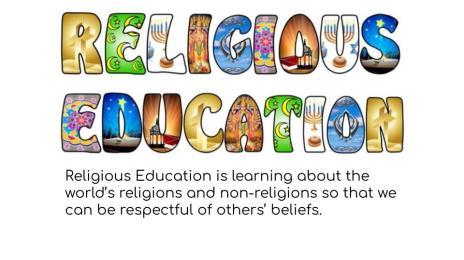


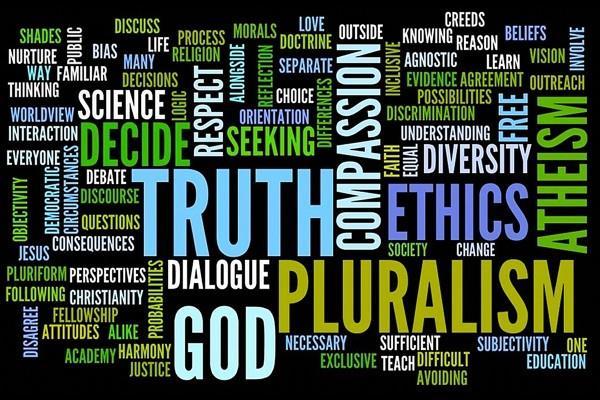



Subject -
Exam Board -
6 X 1hr 15 min exams of 70 marks each:
2 x Biology papers
2 x Chemistry papers
2 x Physics papers
Fundamental aspects of Biology, Chemistry and Physics.You will learn scientific investigative skills through a series of required practicals in each discipline.



Studying a science GCSE is important because it provides a strong foundation in scientific principles, which can open doors to a wide range of future careers in fields like medicine, engineering, and environmental science, while also developing critical thinking, problem-solving skills, and a deeper understanding of the world around you; it also serves as a pathway to further study in science at A-level or university level.

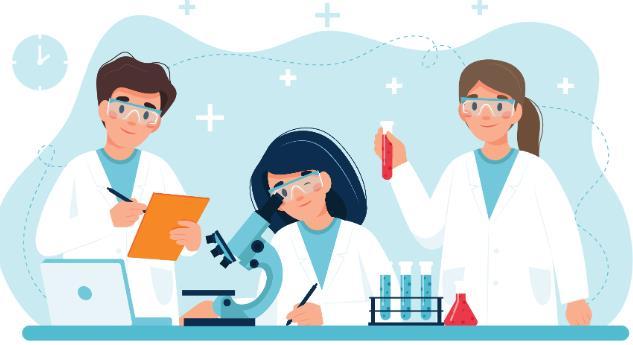
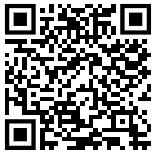

Subject -
Exam Board -
6 X 1hr 45 min exams of 100 marks each, made up of:
2 x Biology papers
2 x Chemistry papers
2 x Physics papers
Learners will have a lot of chances to partake in numerous practical experiments as a part of each of the areas of Science. They will be given the opportunity to attend a number of STEM activities to experience Science in action.



As with combined Science (what you would study without choosing an option), you will study all three sciences. This will take up ONE of your option choices.
You will learn the same content as GCSE combined sciences across all three disciplines, but in greater detail and depth and with additional topics. This also provides an excellent route to A-Levels in Biology, Chemistry and Physics.




Subject -
Exam Board -
GCSE Spanish & French
EDEXCEL (Pearson)
- Listening (25%)
- Speaking (25%)
- Reading (25%)
- Writing (25%)
You will study a variety of topics throughout the two-year course, ranging from fashion and technology to social issues such as poverty and discrimination. Built into these topics are the grammatical structures, phonics and vocabulary required to both discuss and write about them


Living in today’s global society means that we want our students to be able to embrace all the opportunities that life may bring their way. At Holy Family, we are passionate about the benefits learning a language can bring. We strongly believe in languages as a skill for life. Our objective is to enable students of all abilities to develop their Spanish and French language skills to their full potential, equipping them with the knowledge, ability and confidence to communicate in a variety of contexts. With over 300 million speakers worldwide, Spanish is the fastestgrowing language in the world and is the official language of 21 countries. Just imagine the possibilities!



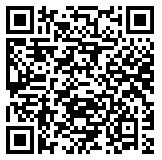

*Disclaimer – The course chosen to be delivered will be at the teacher's discretion and dependant on the majority of students to best fit their needs.
- Improving Sporting Performance
- Fitness for Sport
- Coaching Principles
The qualification is designed to include a variety of aspects of Sport and Coaching including improving their own and others performance, how to assess needs and identify actions plans to develop physical fitness for sport or health, and how to coach different groups with different needs. The knowledge and skills gained provide a clear grounding within the sport and sports coaching sectors for those learners that may choose a career in sport, leisure, fitness instruction and coaching


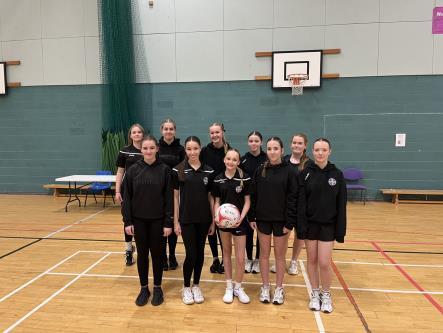
The sports course is designed to encourage and inspire learners into following a worthwhile qualification that provides insight into sports performance and coaching. It is designed to develop independent learners that can make informed decisions about further learning opportunities or continue into related career choices. Learners develop both a critical and analytical approach to problem solving whilst gaining an understanding of sports performance, fitness and coaching principles. Scan to read more…
